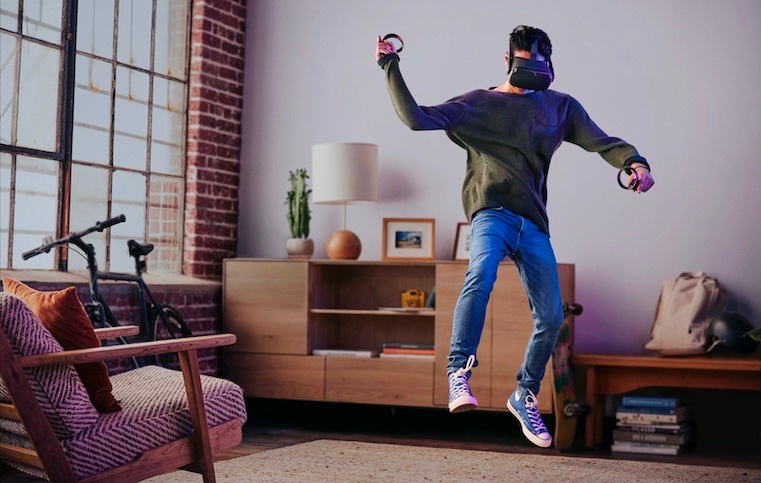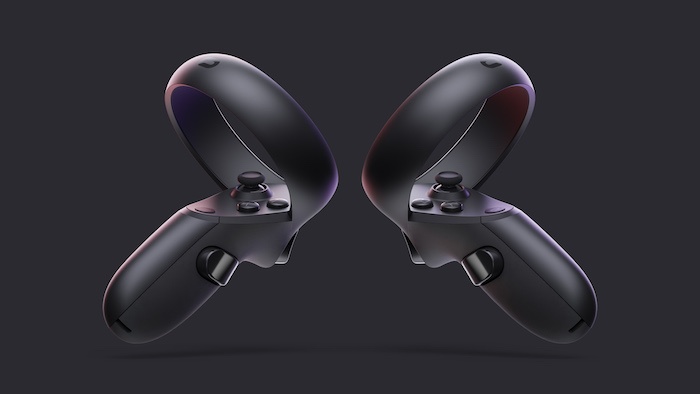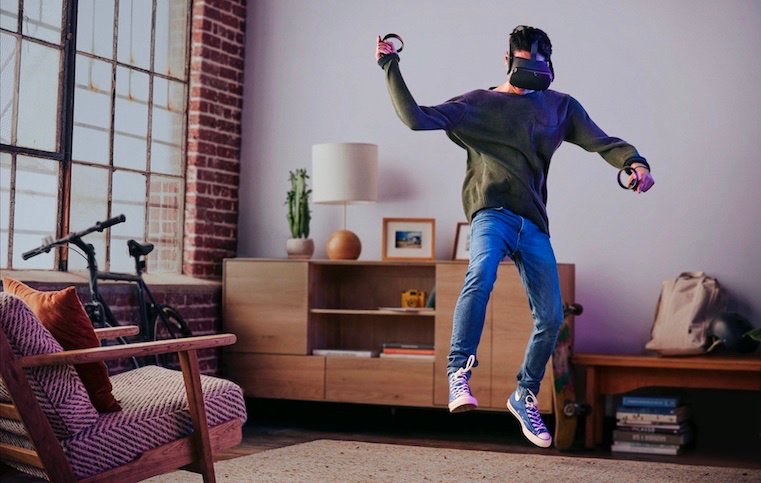The Oculus Quest Experience Whenever I try a new VR headset, I immediately have to warn the person running the demo that I historically get motion sickness from the technology. "A lot of people have told me that," he said, "and then tell me they don't have that experience with the Quest." But what was to explain for these three stark distinctions -- the ease of the controls, the natural feel of the environment and movement through the game, and the lack of motion sickness? Berliner explained that it all comes down to Oculus Insight: the headset's four wide-angled sensors, which understand the user's physical environment, and where she is within that space. Then what's to explain for the natural feeling of the movement? "The reason it feels really fluid and free is because you have the six degrees of freedom, which is all about the kinds of movements you can do while you're being tracked" by the VR platform. Why the Oculus Quest Is a Game-Changer Since the physical and emotional experience of using the Quest was so saliently different from those I had with other headsets -- no motion sickness, intuitive movement, and actual fun -- I wondered how else it might be put to use. "I think it'll be great to see how the same partners and consumers using the Oculus Go and Oculus Rift for those other industries can do with the Oculus Quest." "We're all really interested to see how Oculus Quest changes not only how people play games and people build games," Berliner said, "but also how people learn and communicate, and connect with each other." "Anybody who wants to do something in VR should be able to find the product for them."

There are some days that make us want to escape reality. And it could be said that there’s no better place to do that than a conference dedicated entirely to virtual reality (VR).
This week saw the fifth occurrence of Oculus Connect: Facebook’s annual VR conference. And while this year was a bit skimpy on flashy product announcements, it did see the debut of the latest in the company’s line of VR headsets, the Oculus Quest.
A natural skeptic, I wondered what made the Quest so special. What merited its $399 price tag (as opposed to the $199 Go, an earlier wireless Oculus headset)? And why did Facebook CEO Mark Zuckerberg describe it as “just wonderful” during the event’s opening keynote?
FB has been prototyping this for a while under the code name Project Santa Cruz. Now it’s an official consumer product.
“It’s just wonderful,” Zuckerberg says https://t.co/CJbZrTIAkE
— Kurt Wagner (@KurtWagner8) September 26, 2018
To find out, I decided to take it for a spin.
The Oculus Quest Experience
Whenever I try a new VR headset, I immediately have to warn the person running the demo that I historically get motion sickness from the technology.
I’m not alone (that’s probably why they keep a bowl of ginger candies at the demo stations) but with the Oculus’s two existing headsets, the Rift and the Go, I’ve had to end the demonstrations after only a few minutes.
But the gentleman running this demo, Thomas, told me that this experience might be different. “A lot of people have told me that,” he said, “and then tell me they don’t have that experience with the Quest.”
Sure, Thomas. I’ll believe that when I see it.

Oculus Quest controllers
As I put on the headset and controllers, and the game commenced, two things were immediately apparent to me: 1) how much more intuitive the hand controls felt, and 2) how much more realistic the visuals seemed.
The game was Superhot: an almost dystopian-like scenario in an airport setting, where the player has to destroy her enemies (which come in the form of opaque red, mannequin-like creatures) by punching them, or grabbing and throwing whatever nearby objects she can find at them.

It felt less like I was in a game — and more like I could actually walk around the environment portrayed, duck for cover, and hide when my enemies where coming for me (I was sweating by the time my demo was over). Throwing virtual clay pots at my adversaries felt quite natural — so much, Thomas told me at the end of my seven minutes, I won the game.
The coolest part about this game in particular was how it forced me to slow down. The faster the player moves, it turns out, the faster the enemies move toward her. Not only was it actually fun for a non-gaming-enthusiast like myself, but it was also a bit of an exercise in self-moderation.
Even better: No motion sickness.
But what was to explain for these three stark distinctions — the ease of the controls, the natural feel of the environment and movement through the game, and the lack of motion sickness? What differentiated my Oculus Quest experience from those with the Go and…

COMMENTS